Imagine walking into a doctor's office to find that your physician already knows everything about your state of health, from your blood pressure and treatment history to vitamin D level and coffee preferences. What's more, he already has a treatment plan ready for your case based on thousands of similar cases on the screen. Sounds unrealistic? Maybe for now, but it is the future we are moving to at a skyrocketing pace. And Artificial Intelligence (AI) is what's making it possible.
Artificial Intelligence (AI) is increasingly being applied in various fields, making our lives easier. The healthcare ecosystem is no exception, where AI makes processes work faster and more accurately, becoming the new standard of medicine. AI excels at processing vast amounts of data in seconds, something humans simply can't do at the same speed or scale. It opens up new opportunities in treatment methods, diagnostics, clinical decision-making, development of new drugs, and more.
In this blog post, we will explore how AI is already transforming the healthcare sector, saving lives and improving healthcare outcomes and what we are heading to in 2025.
What role does AI play in modern medicine?
Currently, the healthcare sector is one of the main platforms for the practical implementation of AI technologies, the main of which are:
- Machine Learning: AI systems, trained on vast datasets to identify patterns, make predictions, and enhance decision-making. ML algorithms automate the most complex analytical tasks in medicine and pharmacy.
- Neural Networks: Deep learning models that analyze complex data, such as medical images, to assist in diagnostics and pattern recognition. Computer Vision, a subset of deep learning, specializes in interpreting visual data, including X-rays, MRIs, and CT scans, for more accurate diagnoses.
- Natural Language Processing (NLP): AI-powered tools that interpret patient records, medical literature, and clinical protocols.
Artificial intelligence has become a particularly valuable assistant in a chronic shortage of resources and specialists the industry suffers from. According to Statista, the market size of AI solutions for healthcare is currently about $28 billion. In the coming years, the market is expected to grow at an average annual growth rate of 37%, and by 2030 it will reach almost $188 billion.
What are specific AI applications in Healthcare?
AI-Powered Diagnostics and Disease Detection
Rapid and accurate diagnosis of diseases is a key element of effective healthcare, but it is often slowed down by human limitations or a lack of resources. Patients wait anxiously, scared to hear the diagnosis if it is cancer, a heart issue, or something else, while doctors struggle with blurry scans or overloaded schedules. That is why one of the most impactful uses of AI in healthcare is its assistance with accurate diagnostics. AI helps to make the whole process faster, offer more accurate readings, and improve treatment outcomes.
It can start simple when a patient sends pictures of rashes, cuts, or bruises, and AI will determine the necessary cream. But its real power shines in the tough stuff. For instance, AI analytics is vital for the timely detection of cancerous tumors, the diagnosis of pneumonia and tuberculosis, osteoporosis, Alzheimer's disease, etc. ML algorithms can analyze medical images like MRIs, X-rays, and CT scans to detect abnormalities and assist radiologists and pathologists in diagnosis with accuracy that often surpasses human experts. For example, ML models are being trained to detect lung nodules in CT scans, classify skin lesions in dermatology, and spot diseases, like diabetic retinopathy, a complication of diabetes that affects the eyes, with the same accuracy as human doctors. It can also improve the quality of unsuccessful images.
Using ML algorithms, AI can also detect early signs of diseases like stroke, heart conditions, or neurological disorders. AI-powered computers can quickly process large amounts of data, detecting subtle patterns or changes the human eye might not notice. For instance, AI can detect thickening in certain muscle structures or track changes in blood flow that may indicate certain diseases. AI is also helping doctors make faster decisions by instantly comparing a patient's symptoms to massive databases of similar cases anywhere in the world. This early detection leads to faster treatments and better outcomes for patients.
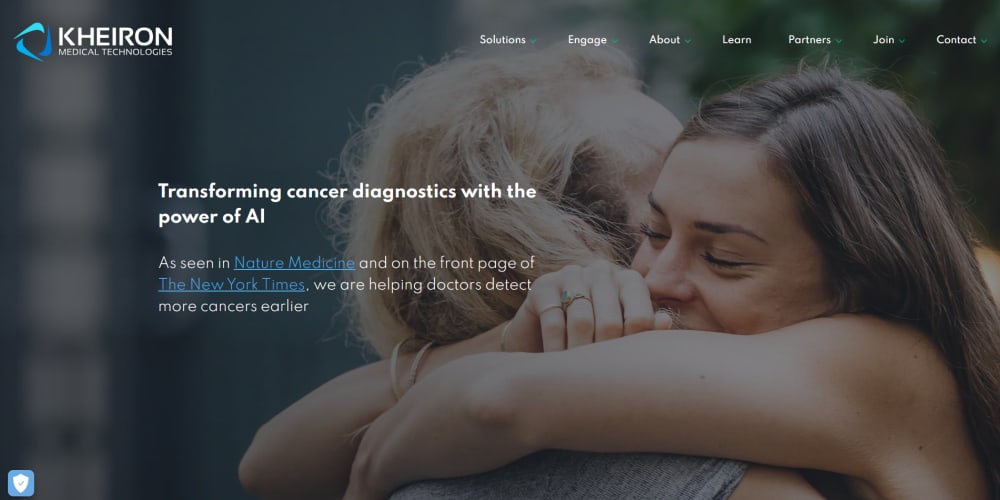
For example, Google's DeepMind AI has demonstrated exceptional accuracy in diagnosing eye diseases by analyzing retinal scans and helping doctors make faster and more informed decisions. Kheiron Medical Technologies specializes in AI-driven solutions aimed at enhancing breast cancer screening. Their flagship product, Mia (Mammography Intelligent Assessment), assists radiologists by processing mammogram images to detect potential signs of breast cancer, aiming to improve early detection rates and workflow efficiency in breast cancer screening. Similarly, tools like Aidoc highlight critical findings in radiology images in real time, while PathAI assists pathologists in identifying cancerous cells more accurately.
Personalized Treatment and Precision Medicine
Another application of AI in healthcare is the development of individualized treatment plans. With access to vast amounts of patient data, AI algorithms can generate personalized treatment recommendations based on genetic data, medical records, lifestyle habits, genetic information, and other factors. It means that treatments are more likely to be effective with a person's unique condition, as such personalization can be crucial in therapy.
Biologists, geneticists, and Data Science specialists are already using specialized neural networks to ana
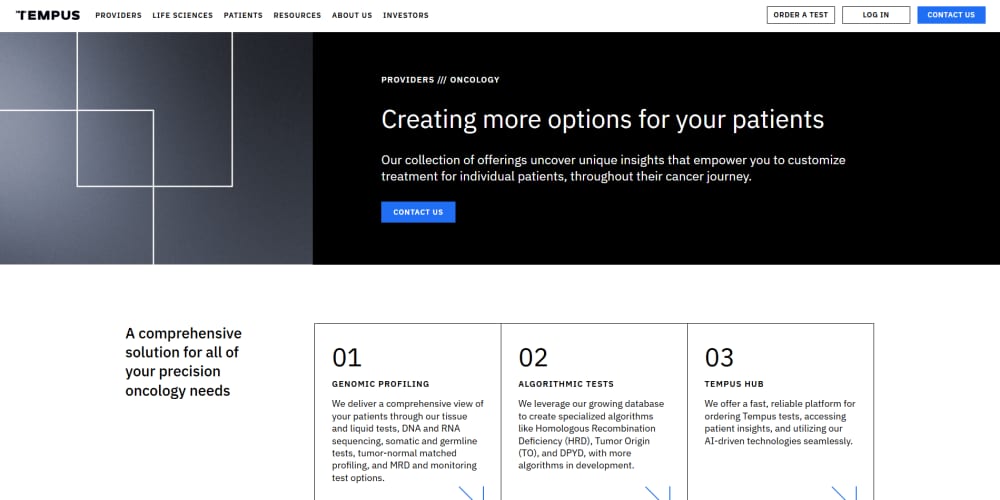
lyze DNA chains in genomic research. These studies require processing entire exabytes of data, so studying the genome without AI models is practically impossible. AI can process fantastic amounts of data to identify genetic markers associated with diseases and drug responses. Analyzing a patient's genetic information allows doctors to best personalize therapy for patients and advise them on inherited conditions and potential health risks. In the future, studying the genome will open the way to treating the most dangerous diseases currently considered incurable.
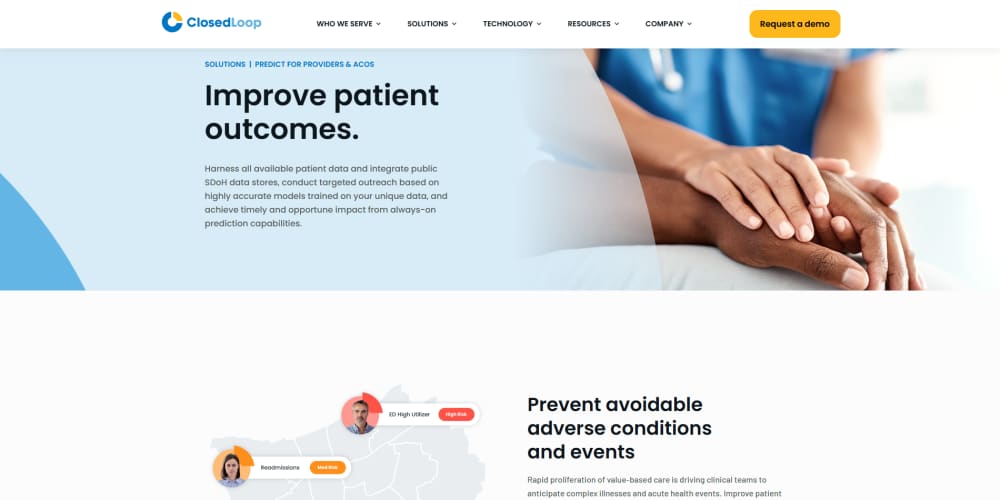
Epic is a leading electronic health record (EHR) system that integrates AI-driven predictive analytics to help healthcare providers. In 2025, hospitals are increasingly using platforms like Epic's AI modules to warn doctors of potential deteriorations, cutting response times and saving lives. ClosedLoop is another solution that focuses on predictive modeling. It integrates data from EHRs, claims, and wearables to flag risks like sepsis or heart failure in real time.
AI-Powered Medical Research & Drug Discovery
Drug discovery has long been a marathon, where trials took years, companies spent billions, and still, many promising medicines never made it to patients. Patients waiting for breakthroughs feel the delay most, stuck with outdated treatments or none at all. Machine and deep learning tools are opening up revolutionary data processing opportunities for medical research, assisting pharma companies in getting medicines to market faster and at a lower cost.
In the discovery stage, researchers must go through various processes like gaining new insights into a disease, finding new compounds, testing these molecular compounds, etc. AI can predict the properties of molecular compounds that are candidates for drugs more accurately than humans and in a fraction of the time it takes traditional research methods. Scientists working on AI-based projects can use modeling tools not only to generate hypotheses but also to test them in simulations. This process provides more accurate predictions before testing in humans, thereby reducing costs and accelerating drug development. Using AI technology, researchers can identify suitable patients to participate in clinical trials and monitor their medical responses more efficiently and accurately.
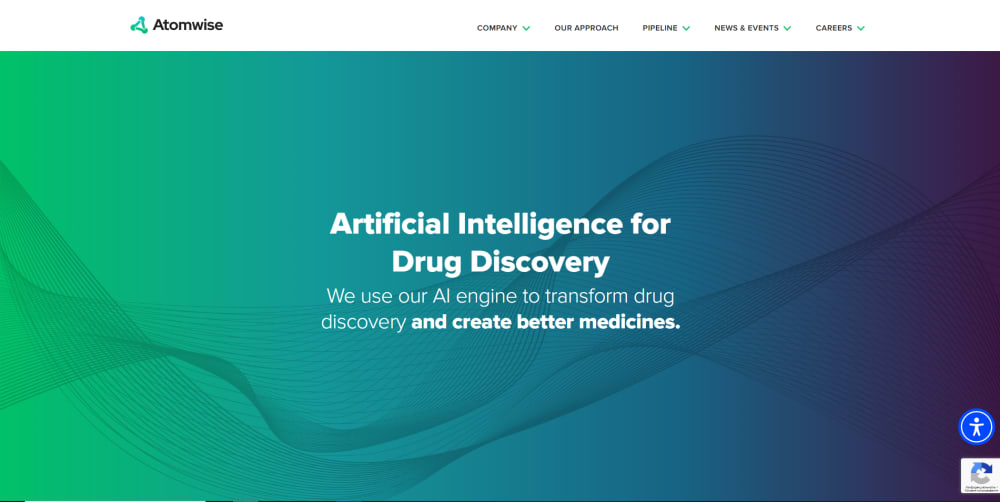
Atomwise utilizes AI algorithms to predict the binding of small molecules to proteins, facilitating the identification of promising drug candidates. Their platform has accelerated the discovery process across multiple therapeutic areas. Similarly, companies like Insilico Medicine and BenevolentAI use machine learning to predict how different molecules interact with diseases, significantly reducing the time and cost of developing new medications.
Virtual Assistants and Remote Monitoring
One of the biggest hurdles patients face is understanding their own health needs. But what if they can have a virtual assistant that texts them a meal plan tailored to their blood sugar levels or alerts their doctor if their heart rate spikes unexpectedly? AI-powered virtual health assistants can provide such 24/7 support for patients. They may help make an initial disease diagnosis by asking a series of questions verbally or by chatting and capturing the information about the patient's symptoms. Then, they can assist with self-diagnosis and prevent unnecessary hospital visits, saving doctors and patients time.They can also answer questions, schedule appointments, suggest personalized treatment plans, recommend lifestyle changes, and offer medication reminders. It is especially critical for patients who live in remote areas and can not consult a real doctor immediately or need constant supervision.
For those patients who require constant supervision, like those with acute and chronic conditions, AI enables remote monitoring where medical professionals track certain aspects of a patient's health from outside hospitals, cutting down on patients' travel costs and infection risk. AI systems pull data from electronic health records, wearable devices, and even patient surveys to create detailed profiles, so providers can keep a close eye on their patient's conditions and make more timely interventions to avoid readmissions and emergency care. For example, AI-powered ECG monitors and wearable ECGs like KardiaMobile by AliveCor can detect irregular heart rhythms, enabling early intervention for conditions like atrial fibrillation. Besides, by automating routine tasks, AI-powered assistants help reduce the workload on healthcare providers, allowing them to focus on more critical aspects of patient care.
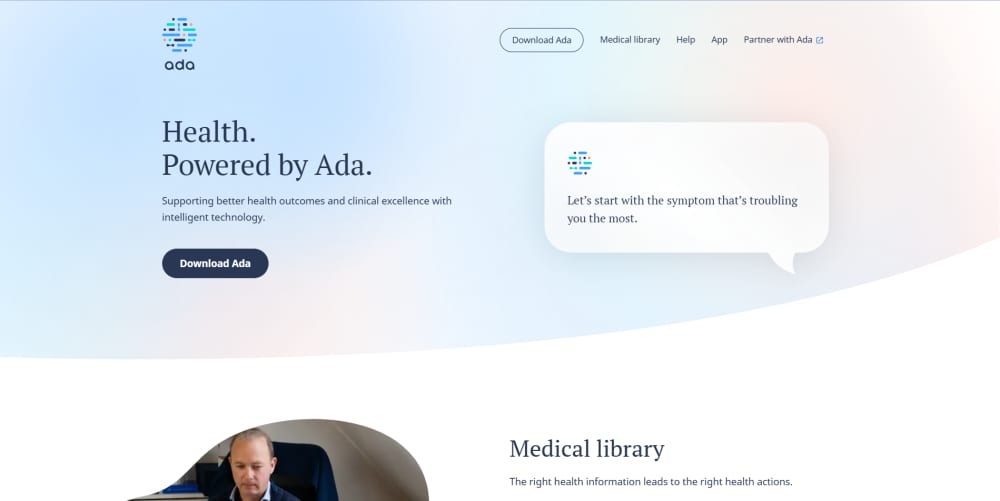
Currently, no chatbot based on generative AI can replace a doctor. But platforms like Ada Health already offer symptom checkers that guide users toward possible diagnoses. It lets users type in symptoms, say, a cough and fever, and get a list of possible causes, guiding them to the next step, like booking a telemedicine visit. Similarly, Buoy Health is an AI-based symptom and cure checker that uses algorithms to diagnose and treat illness. The software chatbot listens to a patient's symptoms and health concerns and then guides that patient to the correct care based on their diagnosis. Amwell, a leader in US telemedicine, pairs AI with live doctors, offering virtual check-ups where the system tracks your health history and flags issues for discussion. Imagine a diabetic patient in a small town: their smartwatch syncs with Amwell, the AI notices a pattern of high glucose, and it schedules a video call with a specialist, all before things get serious. With the improvement of AI models in future, such chatbots could be able to automatically write prescriptions and hospital stays, taking into account the patient's complaints and medical history.
Administrative Efficiency & Predictive Maintenance of Equipment
Modern medicine often relies on complex and expensive equipment. Failure of such equipment can significantly limit a medical institution's ability to provide required patient care or even save lives. At the same time, maintaining and repairing such devices requires high costs and is a time-consuming process, especially in view of the shortage of specialists. AI can predict equipment maintenance needs and prevent the risks of equipment loss. It can also help hospitals streamline administrative tasks such as scheduling appointments, managing electronic health records (EHRs), and billing. AI algorithms analyze hospital data to forecast patient admission rates, optimize resource allocation, improve operational workflows and reduce waiting times. It also helps predict the need for medical supplies and pharmaceuticals, ensuring timely procurement and preventing shortages. These systems improve efficiency and reduce administrative burdens on healthcare providers.
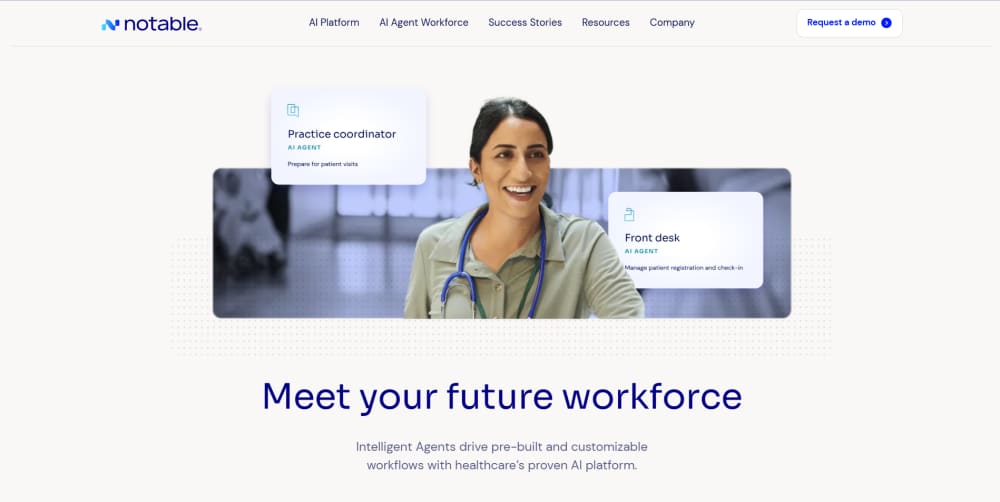
Notable is an AI platform that automates various administrative tasks, including patient registration, scheduling, and authorization, thereby helping reduce the administrative burden on healthcare providers. Qventus is another AI-driven platform that focuses on AI automation to automate hospital operations, improve patient flow and resource utilization. Accruent provides predictive maintenance software for various industries, including healthcare. Their solutions help hospitals ensure the availability and functionality of medical equipment like MRI machines and ventilators.
Robotic surgery
Surgery is one of medicine's toughest challenges - every cut counts, and there's no room for guesswork. Surgeons strive to be perfect, but the capabilities of human hands have their limits. AI is stepping into the operating room, revolutionizing how surgeries are planned and performed. By analyzing patient data, AI helps in pre-operative planning and predicting the best surgical approach before the scalpel even touches the skin. But AI application in surgeries goes beyond just that.
Beyond planning, AI-powered robots can help surgeons perform manipulations with precision and control, outperforming human capabilities. Robots are equipped with mechanical arms, cameras, and surgical instruments to augment doctors' experience, skills, and knowledge to create a new kind of surgery that achieves new levels of speed and accuracy. These capabilities have a particularly strong impact on cardiac surgery, neurosurgery, etc. Further AI evolution will allow the creation of complex equipment capable of performing operations with minimum human intervention, starting with minimally invasive procedures and moving to complex surgeries like open heart surgery. In 2025, this technology is already saving lives and it's heading toward a future where robots might handle entire operations with minimal human help, allowing surgeons to oversee procedures from a console.
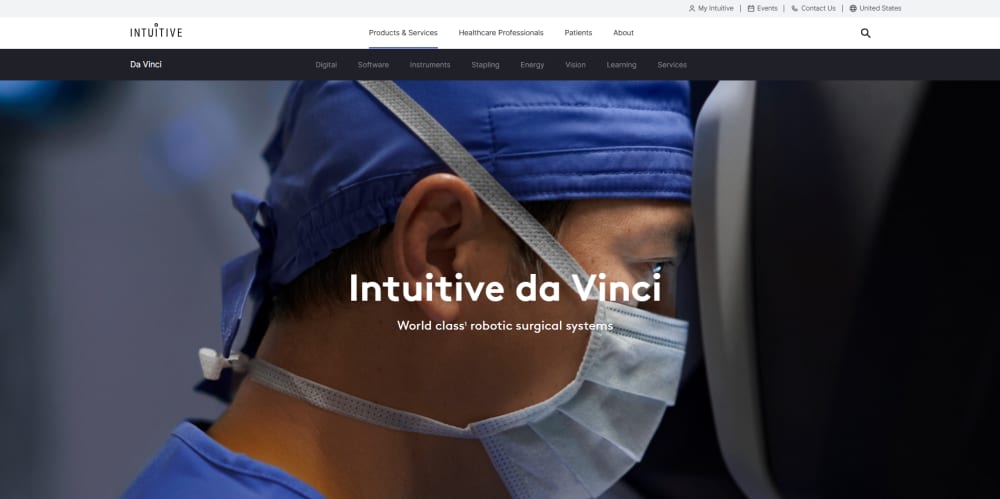
The prominent example of already existing robotic surgery is a da Vinci robotic surgical system, with robotic arms, precise movement, and magnetized vision. This system enables doctors to perform surgeries that would not have been possible with a completely manual approach. Other systems, like Medtronic's Hugo RAS, offer similar precision for spinal and abdominal work.
Bottom Line
There are no doubts that AI is transforming the healthcare industry, providing solutions for more effective diagnosis, treatment, and patient care. As technology advances, AI will play an even more significant role in improving healthcare outcomes worldwide, making it an essential tool in the fight against diseases and enhancing the quality of life for patients. Further development of artificial intelligence and its integration into the medical field may open up completely fantastic opportunities that are difficult to even imagine today.